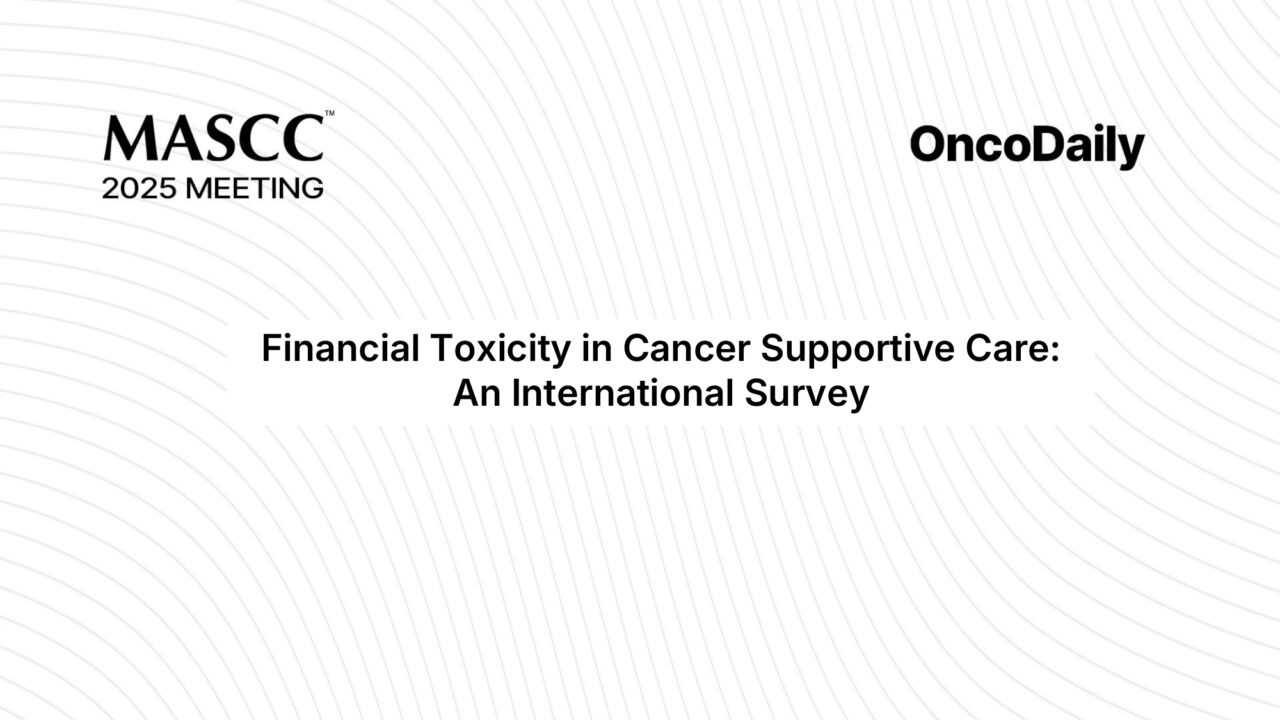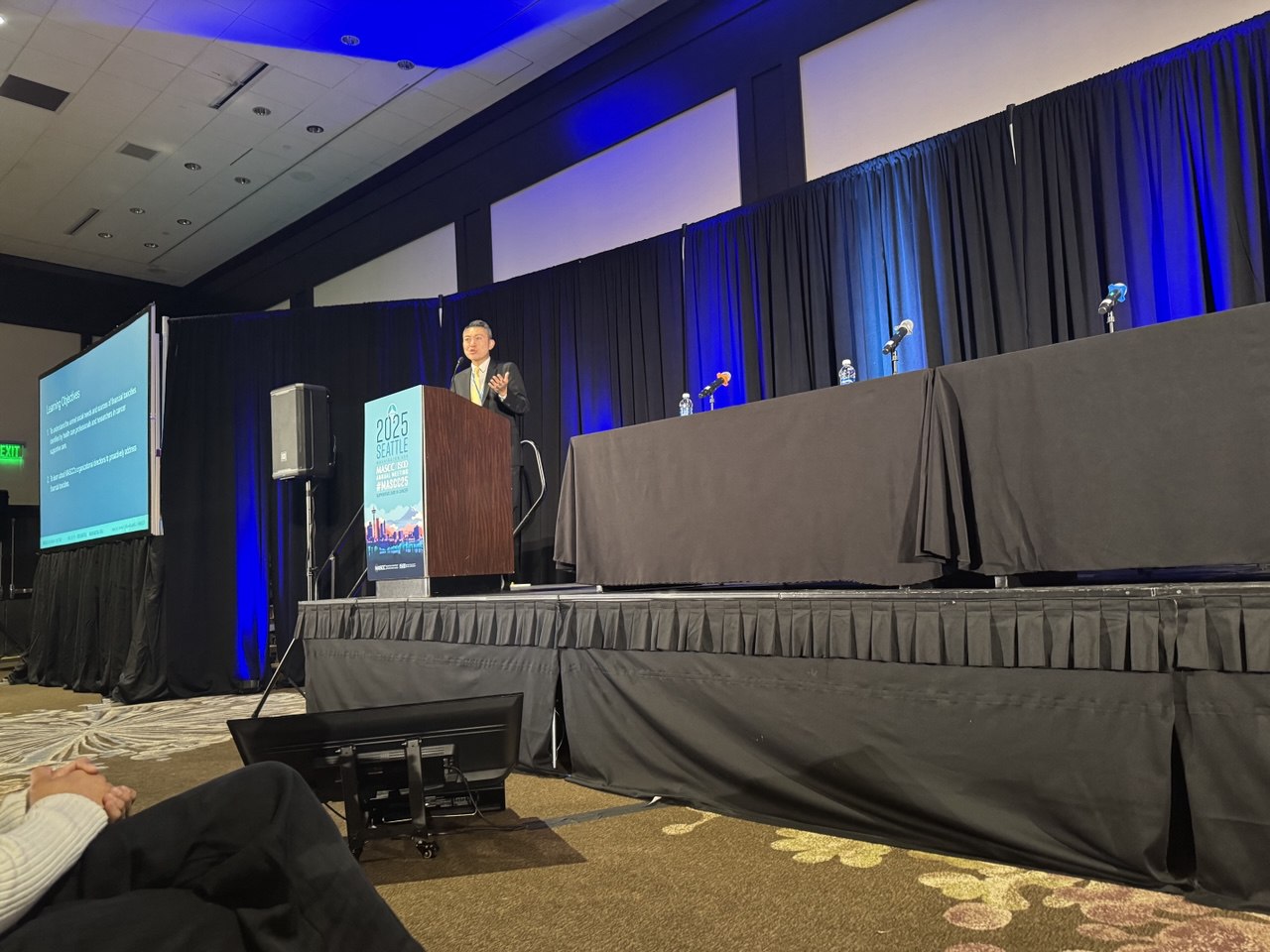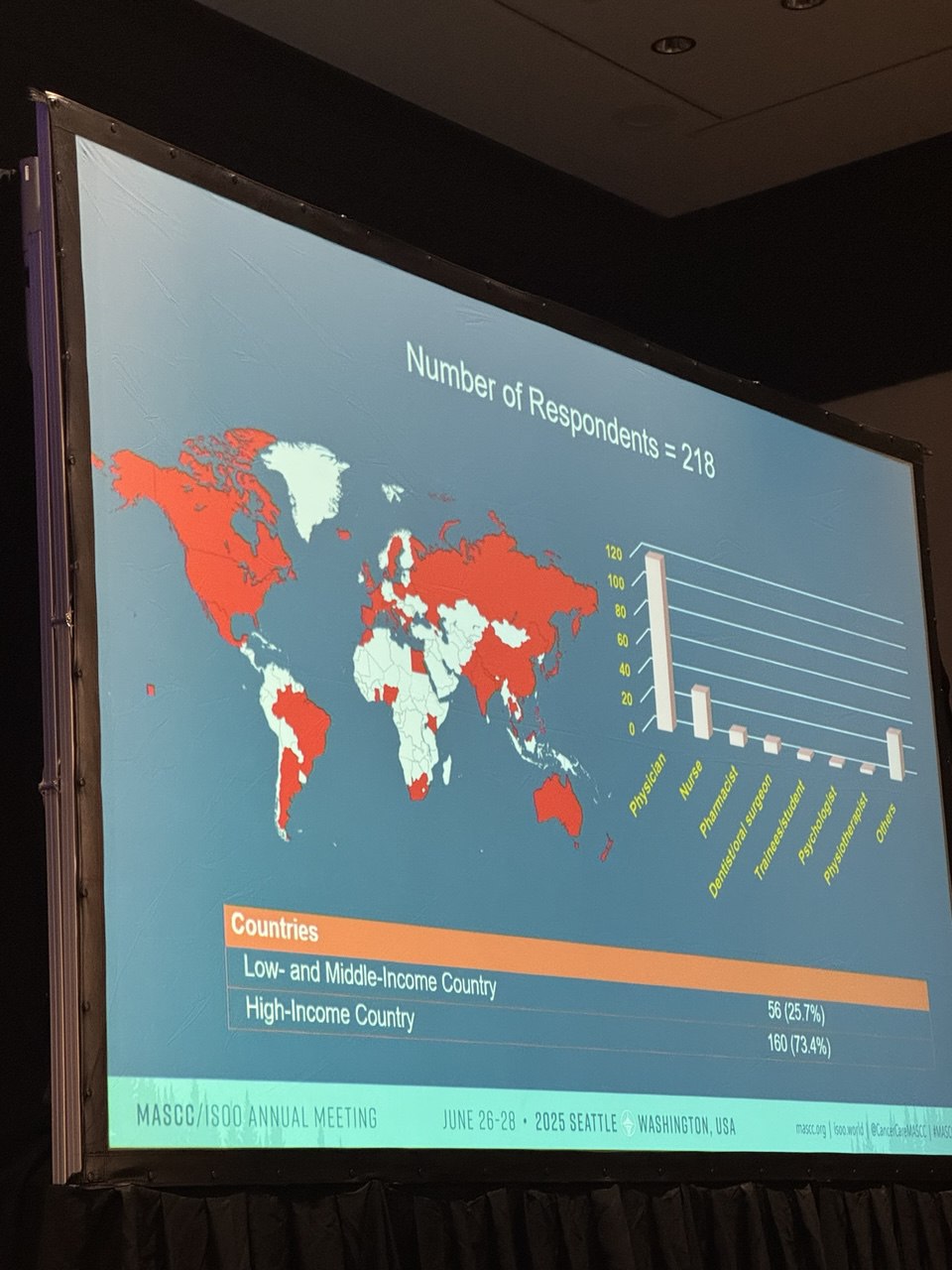
MASCC 2025 Highlights: Addressing Financial Toxicity in Cancer Supportive Care
Financial toxicities took center stage at the MASCC 2025 Plenary Session, where Prof. Alexandre Chan unveiled international survey findings on their global burden in supportive cancer care, while also outlining MASCC’s strategic response.

Financial Toxicity: A Growing Source of Disparity
During a compelling plenary session at MASCC 2025, Prof. Alexandre Chan (University of California, Irvine; MASCC President-Elect) presented results from a global cross-sectional survey led by the MASCC Health Disparities Task Force. The survey explored how financial toxicity (FT) contributes to health disparities in cancer care across both high-income countries (HICs) and low- and middle-income countries (LMICs).
Prof. Chan emphasized that financial burden—defined as the economic burden experienced by patients due to cancer treatment—is a major and underappreciated contributor to inequity in care. While FT affects patients globally, its severity and the systemic response vary drastically between regions.
Survey Design and Respondent Profile
The survey, conducted in March 2023, was distributed to all MASCC members via email with follow-up reminders. A total of 218 respondents contributed to the analysis. Participants included healthcare professionals and researchers with active roles in cancer supportive care across diverse geographies and settings.
The survey included three sections:
- Frequency of social needs assessment
- Perceived sources of financial toxicity
- Availability and sufficiency of institutional support for FT
Key Findings and Interpretation of Results
1. Frequency of Social Needs Assessment
A core finding revealed that clinicians in HICs reported more frequent assessments of social needs compared to LMIC counterparts. This discrepancy reflects systemic differences in care infrastructure and resource availability. The visual data showed a wider interquartile range (IQR) for LMIC responses, indicating inconsistent practices across regions.
2. Top 3 Sources
Self-identified across both groups, the top drivers of FT included:
- Out-of-pocket costs for medications and treatments
- Loss of income due to inability to work
- Indirect costs such as travel, accommodation, and caregiving
Notably, LMIC respondents ranked basic access to medications and essential services higher, while HIC respondents were more concerned with the long-term economic impact, such as lost wages and insurance gaps. A side-by-side comparison chart in the slide deck effectively illustrated this divergence in perceived burden.
3. Institutional Support
The data show a troubling trend: across both HICs and LMICs, support for patients facing FT is generally inadequate. Median support scores ranged between 2 and 5.5 (on a 10-point scale), with LMIC regions reporting the lowest median availability of resources. Institutions often lacked structured navigation, financial counseling, or policy-level advocacy to shield patients from bankruptcy or treatment abandonment.

MASCC’s Strategic Response: Supportive Care 2030 Movement
In response to these findings, Prof. Chan introduced MASCC’s Supportive Care 2030 (SC2030) Movement—a visionary initiative aimed at unifying global supportive care goals. With three main domains:
- Optimal Cancer Care
- Quality Patient-Facing Support
- Comprehensive System Leadership Approaches
SC2030’s 13 aspirational ambition statements—available in 13 languages—aim to set global benchmarks for supportive care delivery. MASCC’s collaboration with the American Cancer Society through the GINO initiative (Global Initiative to Advance Cancer Navigation for Better Outcomes) further reflects a commitment to international partnership and equity.
Conclusion
Prof. Alexandre Chan’s MASCC 2025 plenary presentation underscored the urgent need to recognize and combat financial toxicity as a barrier to equitable cancer care. As MASCC mobilizes efforts through SC2030 and international collaborations, the oncology community is being called to reimagine supportive care—not just as a clinical service, but as a social justice imperative.
-
Challenging the Status Quo in Colorectal Cancer 2024
December 6-8, 2024
-
ESMO 2024 Congress
September 13-17, 2024
-
ASCO Annual Meeting
May 30 - June 4, 2024
-
Yvonne Award 2024
May 31, 2024
-
OncoThon 2024, Online
Feb. 15, 2024
-
Global Summit on War & Cancer 2023, Online
Dec. 14-16, 2023
